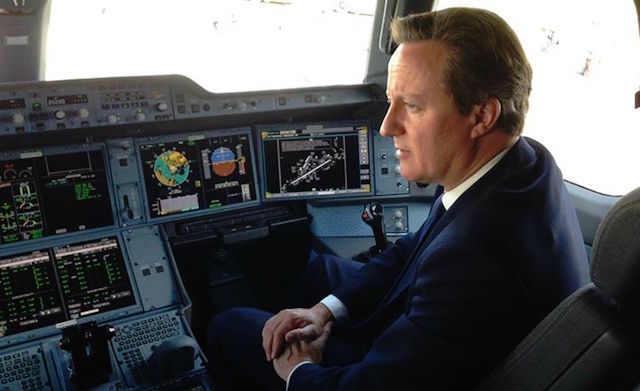Breaking news
UK steps up defence spending for special operations units 41911154.
|
|
|||
|
Defence & Security News - (Country News)
|
|||
|
|
|||
| UK steps up defence spending for special operations units | |||
|
The British Prime Minister, David Cameron, stated that the country has to show the same resolve in defeating terrorism in the same way it did during the Second World War fighting against Hitler. In the aftermath of the terrorist attacks in Paris he announced an increase in the defence budget.
|
|||
|
|
|||
 (Photo: David Cameron, Facebook) |
|||
|
|
|||
|
Upon his return from the G20 summit, David Cameron outlined a new defence spending plan to the fight against the Islamic State. The full scale of the plan will be clear with the new Strategic Defence Review, which is expected to come out in the next week. Nevertheless, on a top level, the British government is planning to maintain the 2% cap of the GDP being spent on defence, as it was outlined during NATO’s Summit in Wales. The 2% of GPD spent on defence will also include the funds directed to intelligence. The government had announced that it would significantly increase personnel and systems in the intelligence services. Defence Minister Michael Fallon has told at a BBC Radio 4 programme that this is not an indirect way of reaching the 2% cap, fending off the opposition’s criticism. A significant proportion of the additionally allocated funds will go to the special operations units, such as the SAS and the SBS, These are expected to be around GPB2 billion in the next five years, in order to increase their capabilities. Providing a glimpse of the military strategy against the IS, special units will play a crucial role. It is estimated that such units would deploy their personnel on the ground. Along with that, extra funding will be made available for expanding twofold the UAVs fleet number and capabilities, to conduct ISTAR and strike missions. Other areas that are critical in the fight against the Islamic State and will receive additional economic resources will be, airport and transportation security; police forces; protective equipment; communications; cyber-defence; helicopters and aircraft. Finally, given that the fight against terrorism is not solely a military act, it requires the application of soft power, which is targeting the factors creating it, namely, poverty, lack of education, infrastructure, development and others, the British government will increase the budget dedicated to the support of failed or fragile states. That is the Department of International Development will spend 50% instead of 30% of its GBP12 billion budget to those states. |
|||



















